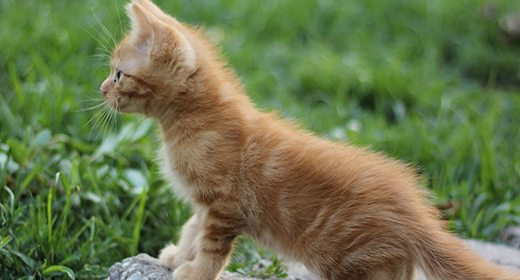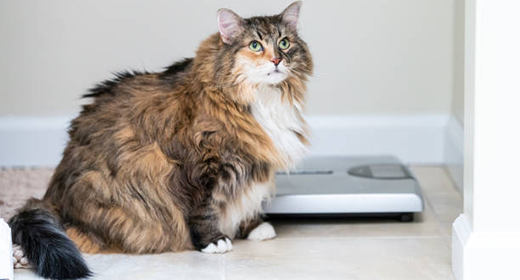

With all of the different kitten food options and ingredients available, it’s important to learn what your kitten needs and what is less essential. You may have heard of flaxseed meal, an ingredient included in some wet cat foods. Is flaxseed meal, a source of omega-3 fatty acids, a necessity for your kitten?
Learn more about this ingredient and how it can affect your kitten’s health for the better.
Flaxseed meal is the ground seed of the flax plant. The oil in flax is a good source of omega-3 fatty acids like alpha-linoleic acid, which is the parent compound of other omega-3 fatty acids.
In kitten and cat food, flaxseed meal is used to provide omega-3 fatty acids to give a balance of omega-6 to omega-3 fatty acids in the diet. IAMS research shows that balancing the amount of omega-6 and omega-3 fatty acids helps maintain a healthy skin and coat.
Including omega-3 fatty acids like alpha-linoleic acid in a kitten’s diet can help:
Alpha-linolenic acid may be an essential omega-3 fatty acid; however, it may take several generations for the signs of deficiency to become evident in a cat. When choosing a wet food, consider one that contains flaxseed meal to help maintain your kitten’s health during this time of rapid growth and development. IAMS™ Perfect Portions™ Healthy Kitten Pate with Chicken is formulated with omega-3 sources, including flaxseed meal, to provide guaranteed levels of omega-3 fatty acids.


It’s common sense that feeding your cat a high-quality diet has its benefits. But when it comes to maximizing your cat’s lifespan, diet is only part of the equation. Read up on everything you need to do to ensure your cat lives happily for a long time to come.
Let’s start with something you do every day: feed your cat. There are several healthy options to choose from, so we’ll help you zero in on the formula that’s best for your cat. It’s important to note that cats are natural carnivores. Therefore, a formula with meat as the primary ingredient is a great place to start. Meat as a protein source has certain nutrients, such as taurine, that non-meat protein sources simply do not.
Regular visits to the veterinarian can help nip health issues in the bud. For instance, a vet will be able to tell if your cat is gaining too much weight and can recommend a diet and fitness program to get your kitty back to a healthy size.
You may even want to bring a fresh fecal sample along to your next appointment. Your vet can use this sample to search for ringworms. This tip can save you extra trips to the vet’s office in case your cat does not cooperate, so to speak, during her appointment.
Also, vets provide your cat with the vaccinations she needs to fight off diseases such as feline rabies. Some vaccinations are required annually, while others should be administered every three years. Your vet’s office can help you keep track of it all, so remember to schedule that appointment!
Your cat relies on you for more than just healthy food and fresh water. She needs stimulation. Sure, cats love their independence, but let’s be honest, they love getting attention. By playing with your cat for even 10 to 15 minutes a day, you are doing wonders for her lifespan. Some great games to play don’t even require fancy toys. Get a piece of string and tie it around a clean sock, then yank the string whenever your cat comes in close to investigate. Voila! Instant fun!
Cats don’t go on runs like dogs do, so keeping your cat active with games and toys is the best way to help keep her fit.
Follow these tips and your cat will be on her way to a long and happy life with you. You’re a great owner for taking the time to read this article. It shows how much you really care about her. Now step away from the computer and show your cat some attention!